- Home
- Rose Tremain
The Garden of the Villa Mollini
The Garden of the Villa Mollini Read online
About the Author
Rose Tremain is a writer of novels, short stories and screenplays. She lives in Norfolk and London with the biographer Richard Holmes. Her books have been translated into numerous languages, and have won many prizes including the Orange Prize, the Whitbread Novel of the Year, the James Tait Black Memorial Prize, the Prix Femina Etranger, the Dylan Thomas Prize, the Angel Literary Award and the Sunday Express Book of the Year.
Restoration was shortlisted for the Booker Prize and made into a movie; The Colour was shortlisted for the Orange Prize and selected by the Daily Mail Reading Club. Rose Tremain’s most recent collection, The Darkness of Wallis Simpson, was shortlisted for both the First National Short Story Award and the Frank O’Connor International Short Story Award. Three of her novels are currently in development as films.
ALSO BY ROSE TREMAIN
Novels
Sadler’s Birthday
Letter to Sister Benedicta
The Cupboard
The Swimming Pool Season
Restoration
Sacred Country
The Way I Found Her
Music & Silence
The Colour
The Road Home
Short Story Collections
The Colonel’s Daughter
Evangelista’s Fan
The Darkness of Wallis Simpson
For Children
Journey to the Volcano
THE GARDEN OF THE VILLA MOLLINI
Rose Tremain
This ebook is sold subject to the condition that it shall not, by way of trade or otherwise, be lent, resold, hired out or otherwise circulated without the publisher’s prior consent in any form (including any digital form) other than this in which it is published and without a similar condition including this condition being imposed on the subsequent purchaser.
Epub ISBN: 9781407019048
Version 1.0
www.randomhouse.co.uk
Published by Vintage 2003
2 4 6 8 10 9 7 5 3
Copyright © Rose Tremain 1987
Rose Tremain has asserted her right under the Copyright, Designs and Patents Act 1988 to be identified as the author of this work
Some of the stories in this collection first appeared in the following publications: ‘Will and Lou’s Boy’ (Paris Review, Summer 1985); ‘The Garden of the Villa Mollini’ (Critical Quarterly, January 1987); ‘Tropical Fish’ (Listener, July 1985); ‘La Plume de Mon Ami’ (Foreign Exchange, ed. Julian Evans, Hamish Hamilton and Abacus, 1985); ‘Wildtrack’ (Winter’s Tales: New Series 2, ed. Robin Baird-Smith, Constable, 1986); ‘The Kite Flyer’ (The Seven Deadly Sins, Severn House, 1984; and ‘The Bellows of the Fire’ (Good Housekeeping, 1987)
First published in Great Britain in 1987 by Hamish Hamilton Ltd
Vintage
Random House, 20 Vauxhall Bridge Road, London SW1V 2SA
www.vintage-books.co.uk
Addresses for companies within The Random House Group Limited can be found at: www.randomhouse.co.uk/offices.htm
The Random House Group Limited Reg. No. 954009
A CIP catalogue record for this book is available from the British Library
ISBN 9780099441991
For my Mother, Jane Thomson, with love.
Contents
Will and Lou’s Boy
The Garden of the Villa Mollini
Strawberry Jam
Tropical Fish
La Plume de Mon Ami
Wildtrack
The Kite Flyer
The Bellows of the Fire
The New People
Will and Lou’s Boy
THIS WAS AN average dawn in the early summer of 1948, the year I got to be eighteen.
‘Eat your fishcake, Dougie,’ said Lou.
They were barracouta fishcakes. Awful. They tasted like it was the fish’s seaweedy liver you were eating.
‘Yes, eat your fishcake, Doug,’ said Will.
Will and Lou. I thought of them as one: Willou. I was their son, Douglas. I was their only child.
Chief in our household was Lou’s obsession to win the Queen Mary Gardening Cup. In 1947, we’d entered for the Princess Royal Gardening Cup, but we hadn’t won it and Lou had turned her disappointment into rage. Until then, she’d been a moderately contented woman. Now, she was raging and cooking barracouta. Poor Will. Poor me. The world was funny those years.
We had a pre-fab. They’d built the row we were on in about one day. Only pre-fab dwellers were allowed to enter for the gardening cups. Rain had knocked down a lot of Lou’s gladioli the night before Cup Day. It hadn’t rained in Wandsworth, where the winner lived, and this was one among lots of things that didn’t seem fair to Lou. ‘Soddin’ Wandsworth!’ she’d say. She never normally swore much. She’d learnt ‘soddin’ from my Aunt If, who’d learnt it from my Uncle Pepino who sold ice-cream and illegal nylons meant for export. My Uncle Pepino was Italian, but pretended not to be during the war. ‘Call me Pep,’ he’d ask. ‘Yes, call him Peppy,’ said Aunt If, who, at the age of sixteen, had rebaptized herself Iphigenia. Her old name, which my father still used sometimes, was Gladys. She could get as angry about being called Gladys as Lou could get about Wandsworth. The men in our family, including me, seem to be calmer people than the women. Peppy was arrested that year, but he stayed calm.
The best thing about dawn in that pre-fab was knowing you’d be out of it all day. We were all out, even Lou, who worked in a rayon factory. Will was a wireless assembler. He had the same reverence for wirelesses as some people have for God. He relied on the Home Service to tell him who or what he was. He’d polish our wireless, this fount of understanding, with Min Cream and old stockings. Lou said a man like him ought to have a secure future. And she’d look at me. Sometimes, this sideways look of hers made me think she was thinking I didn’t have a future of any kind, let alone secure. Lou and Will. Will and Lou. Willou.
I was a park attendant. My wage was four pound ten a week, not bad for then. Bits of my park had been ploughed up and sown with barley. This barley spoilt the atmosphere of the park, made it somehow noisier. Also, the kids used the barley to piss in. I’d see the heads of the girls, squatted down. But despite or notwithstanding the barley, I loved that park. That year, all the benches were getting painted and the fishpond was restocked with goldfish. We had a new Head of Parks called Mr. Dowdswell, who wasn’t like a clerk, but more like a visionary. The day they ploughed up his lawns for cereal, he developed the habit of tugging out hanks of his hair.
For my eighteenth birthday, Lou said, ‘You ask a friend, Dougie.’ I didn’t have any friends really, as Lou perfectly well knew, so I asked Knacky Mick, who sold matches and empty boxes and tins of bootblack on the corner by my park gates. Knacky Mick was a Wicklow son, blue-pale in that way only the Irish are in winter. He must have been fifty. ‘I’m an orphan, you know, Doug,’ he often said. I liked him. When he heard I had an uncle getting black market stuff, he began to take an interest in me and sneak me matches for Lou, ‘For the gas fire, like.’ We didn’t have a gas fire in the pre-fab. We didn’t have a fire at all, but a paraffin heater Lou christened Old Smoky. But Lou liked getting matches. She grew to expect it. Free anything, in those peculiar days, was appreciated – a rubber band, a safety pin, a half yard of knicker elastic . . . and one afternoon, Lou won second prize in a raffle, one solitary brown egg. The first prize was three bananas. Lou didn’t complain. She scrambled the egg with a lot of milk and we shared it on toast. She dreamt about the bananas, though. She dreamt someone gave us a banana tree for the pre-fab garden.
Two things were coming: the party for my eighteenth birthday and the day of judgment in the Queen Mary Gardening Cup. There was
a long heatwave. The barley in my park started to ripen. Courting couples began the habit of lying down in it and I was supposed to shoo them away. ‘I’m sorry, Sir, I’m afraid you’re spoiling our crop,’ Mr. Dowdswell told me to say. One day, I said by mistake, ‘I’m sorry, Sir, I’m afraid you’re soiling our crop,’ and I was so miserable at getting the wrong word, I left the couples alone after that, and the barley, which had once been a kids’ lavatory, now became a field of iniquity.
The most iniquitous person in our family was my cousin, Patricia, daughter of Aunt If and Peppy the Italian. In the war, she’d fallen in love with a G.I. called Wedderburn C. Wicklens, a Southern, beefy man, raised with his gut full of corn pone and his brain full of cotton. He was from Louisiana State. Patricia could just imagine the kind of wooden house she’d own on the New Orleans delta, and when Wicklens left her in ‘46, she cried herself almost into the grave. Now, two years later, Wedderburn C. Wicklens was back and cousin Pat was made a bride. Peppy’s son-in-law was exactly one foot and four inches taller than him, as witnessed to this day by the wedding photograph. In this picture, everyone’s grinning except me. I’m standing to attention. ‘God!’ Lou sometimes used to say, staring at the photo on Aunt If’s tiled mantlepiece, ‘just look at that nincompoop!’
Preparing our garden for the Cup and preparing for this grand meal we’d have when I was eighteen took a lot of resourcefulness. We nicked bricks from the bomb site on Weatherby Road to make a garden ‘wall’ that never got higher than two feet. I nicked bedding antirrhinums and nemesia from the park and stakes for the gladioli, over which Lou was taking no chances. I would have got the sack if Mr. Dowdswell had caught me, but Mr. Dowdswell was a man who saw vistas of things, not small transactions. Uncle Peppy, not yet in prison, figured big in our planning, so did Wicklens, whom we now addressed as ‘Wed.’ ‘In more than one sense Wed,’ I said. But no one laughed. ‘Shame Dougie was too young to see Combat,’ I heard Wed say to Lou one evening. ‘Yes,’ she said, ‘it might have been the saving of him.’
They thought being eighteen might be the saving of me. If we could just scrimp together enough ration cards, if Peppy could just do a nylons deal with the butcher, if Wed could just get whisky and chocolate powder and margarine from the PX, if If could just run me up a new tweed jacket. If, if, if. . . . ‘You’ll feel better when you’re eighteen, Dougie,’ Lou lullabyed as she tucked me in. ‘You’ll feel more like a man.’ So I lay and thought about this. I didn’t think I’d grow up like Will – to be good. I knew I wouldn’t grow up like Peppy – to be smart. When I imagined my future, it was exactly the same as my present. The only thing that changed wasn’t me but the park. They harvested the dirty barley. They ploughed in the stubble and back into the soil went the sweet papers and the used johnnies and the hairpins, and the land was resown with grass and everything in the park became orderly again. Mr. Dowdswell’s hair grew back. We were allocated some new shears. The thing I wanted to say to Lou was, ‘I’m not unhappy.’
Then we heard about the housing lottery.
The coming of the news about the housing lottery was like the coming of malaria. Lou began to sweat. It was like the jungle had suddenly surrounded her. She’d fan the air with her knitting patterns. ‘You can’t breathe in this place,’ she’d say, making our barracouta cakes. ‘Help your mother,’ Will would say accusingly. So I’d set the table and get out the tea strainer and stare at Lou’s arms, white and moist above the greasy pan. Love for Lou has always been something I’ve suffered from. Even in my imagined future, I still suffered from it. ‘I don’t mind the pre-fab,’ I’d say to Lou’s arms preparing our seaweed meal. Without looking up at me, she’d say, ‘Don’t be silly, Douglas.’
It was me they sent to get our lottery number. The Housing Office had women queuing right down the stairs and into the street. I missed an entire afternoon’s work standing in that queue, risking my job for Lou’s malaria. ‘You’re not eligible if you’ve got a pre-fab, love,’ someone told the, but I hung on. There must have been a thousand people there, not counting babies, two thousand upper and lower jaws all wagging about hardship and eligibility and fairness. Our number was 879. Aunt If said this was auspicious because 879 was a close-together group of numbers. I thought of the number as representing our family. I was the thin 7 in the middle, with Lou and Will leaning over me. Even now – and they’re both long dead, actually – I still sometimes think of Lou as 8 and Will as 9. ‘Dear God, please take care of the immortal souls of 8 and 9,’ I sometimes pray. And I feel them at my side, Will watching me, Lou with her profile turned.
A lot happened the following day. Mr. Dowdswell gave me a Severe Reprimand, Knacky Mick was taken to hospital, and Uncle Pepino was arrested for illegal trading. Aunt If, who is something of a gypsy to look at, read catastrophe in the stars, pawned her sewing machine to raise Peppy’s bail, and cried on Lou’s shoulder. ‘At least,’ said Lou to her sister-in-law, ‘you’ve still got your own house.’ I left them and got a bus to the hospital. Our lottery ticket was stuck up on the mantlepiece behind a glass unicorn. Knacky Mick, when I found him, was Irish-blue under his stubble and dosed to his skull. ‘Suppressing me, they are,’ he muttered. In his locker were his matchboxes and his tins of shoeblack, piled up. ‘Come to a party,’ I said, ‘I’d like to invite you to my eighteenth birthday party.’
‘Very good,’ he said.
I didn’t mind the hospital. I sat by Knacky Mick for quite a while. A drip was hitched up to his vein. Other patients winked at me, the ones on their own without visitors. Knacky Mick slept a drugged sleep. The room was high and light and full of people whispering. It wouldn’t be bad, I thought, working here. This was the first time I ever imagined having a job quite far away from Will and Lou. It gave me an odd feeling, as if I’d made myself an orphan.
Now, four things were coming: the Gardening Cup, my eighteenth birthday party, Pepino’s trial and the housing lottery. No wonder Lou couldn’t breathe. These things were like weights on her chest. My ideal future was one in which there was nothing to fear and nothing to hope for. I didn’t mind if we got chocolate powder for my party or not. I didn’t care if we went to live in a new flat with a refrigerator or not. ‘The trouble with Dougie,’ said my cousin Pat, dreaming still of her Louisiana clapboard house, ‘is he’s got no imagination.’ Well, I didn’t care if I had imagination or not either. The thing that was awful was that Lou had started to care so much about everything, she seemed deranged. And I cared about that. I wanted her to be like she’d been when she’d won the solitary egg – contented.
Our pre-fab garden looked neat on Cup Day. We’d stuck in the shearings from a conifer hedge in my park, to look like a new little conifer hedge. We took down our washing line. Mr. Dowdswell let me borrow the edging shears to straighten up the grass. It wasn’t bad. The adjudicator smiled at Lou’s new home perm and said, ‘Very nice. Congratulations.’ Under the perm, her malaria was still raging away. ‘It means a lot to us,’ she said, in a choked voice. And the adjudicator took off his look of admiration and put on a look of pity and I knew we hadn’t won.
‘We haven’t won, Louie,’ I told her.
‘You know nothing about anything, Douglas,’ she told me back. Which, in a way, was true.
Wedderburn Wicklens gave me forty Senior Service cigarettes on the day of my birthday. I didn’t smoke, so I gave them to Willou, who did. I thought how odd it was that Wed hadn’t noticed I didn’t smoke. But there were a lot of things Wed didn’t notice, like for instance, he quite often called Patricia ‘Candice.’ ‘If you call me Candice again I’ll kill you!’ she once told him. But this threat of death didn’t seem to do the trick. Half way through my eighteenth birthday meal, a huge belch rumbled up out of his stomach and he said quickly: ‘didn’t hear that, did you, Candy honey?’ ‘Who’s Candy?’ asked Willou simultaneously. Patricia slammed down her knife and fork and ran out into the hot night falling. Pepino stood up. Beside my gypsy Aunt If, he looked like a little yellow duck. ‘You
!’ he yelled. ‘You mind! You Yanki-panki!’ And then he sat down again and Wed got up and wandered lazily out to Patricia.
We were eating pork ribs, for which Pepino had paid four pairs of nylons. Our fingers and chins were mucky and red from Lou’s sauce of boiled tomatoes. Wed told us we should call this meal spareribs and Will guffawed with derision, ‘Typical American!’ he said, ‘call everything superfluous!’ We picked the last shreds of meat from the ribs and washed these pickings down with beer. Lou had got her chocolate powder and her egg powder and on the afternoon she was told the winner of the Queen Mary Gardening Cup lived in Camberwell, she cried away her hopes into an enormous cake. She wrote (she hadn’t got a fantastic imagination either) D 18 on the top with angelica she’d bought before the war. It made me uneasy. I thought, I’m glad she couldn’t tattoo it onto me.
Knacky Mick never came to my birthday party, he was too ill. I saved him some cake. I thought, I’ve only got one friend and that’s Knacky Mick and he’s going to snuff it. I felt a bit like crying, but Lou and Will had their eye on me. Full of beer, they said, ‘This is a new start, Dougie. This is your chance to start again.’ I started to say I was perfectly content as I was, but nobody was actually listening. Will and Lou and Peppy and If had turned away from me and were lighting up the Senior Service I’d given them and talking about their chances of being rehoused, in Peppy’s case in Brixton jail and in Willou’s case in William Petrie Buildings, the lotteried flats with fridges and radiators. I looked round to see what was happening to Pat and Wed and I saw them kissing by the conifer hedge. I unwrapped the bobble hat Lou had knitted for my birthday present and put it on. The thought that Lou’s fingers had fashioned every one of the stitches that went round and round my head made me feel very warm and happy. ‘Just look at him!’ she said a while later, blowing smoke at Peppy, ‘Honestly!’

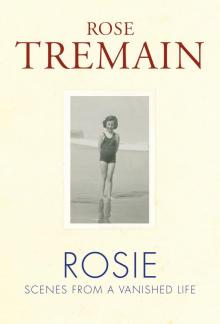 Rosie
Rosie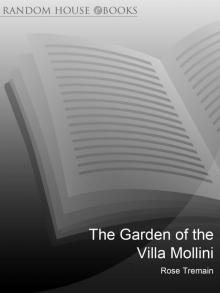 The Garden of the Villa Mollini
The Garden of the Villa Mollini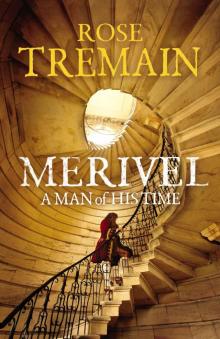 Merivel: A Man of His Time
Merivel: A Man of His Time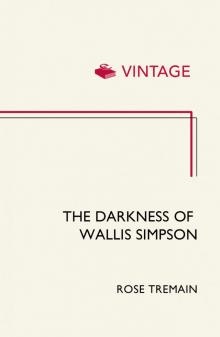 The Darkness of Wallis Simpson
The Darkness of Wallis Simpson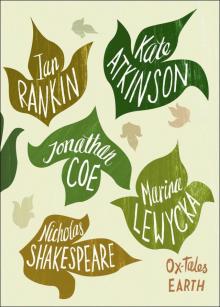 Earth
Earth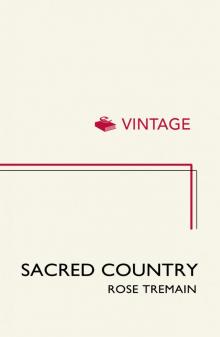 Sacred Country
Sacred Country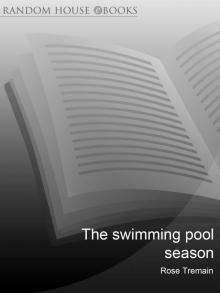 The Swimming Pool Season
The Swimming Pool Season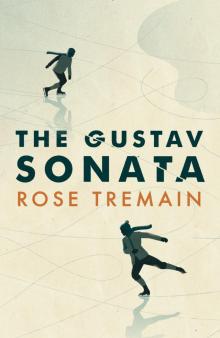 The Gustav Sonata
The Gustav Sonata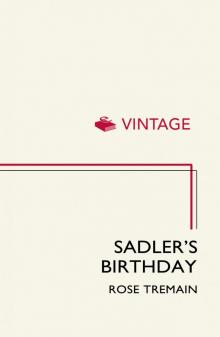 Sadler's Birthday
Sadler's Birthday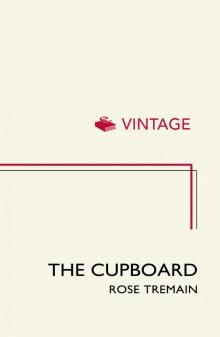 The Cupboard
The Cupboard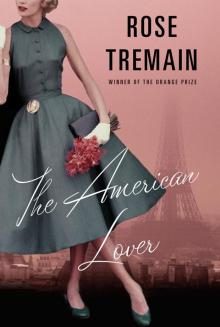 The American Lover
The American Lover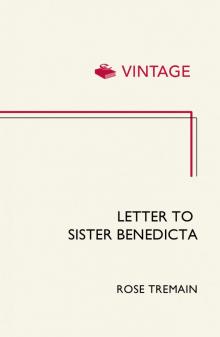 Letter to Sister Benedicta
Letter to Sister Benedicta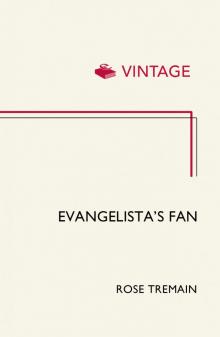 Evangelista's Fan
Evangelista's Fan Restoration
Restoration The Road Home
The Road Home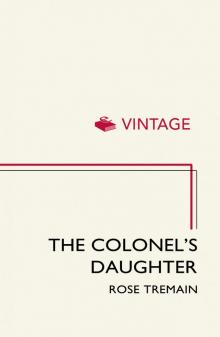 The Colonel's Daughter
The Colonel's Daughter The Way I Found Her
The Way I Found Her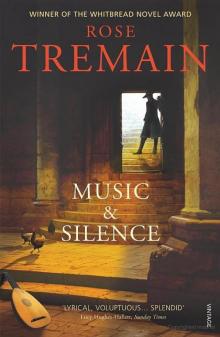 Music & Silence
Music & Silence